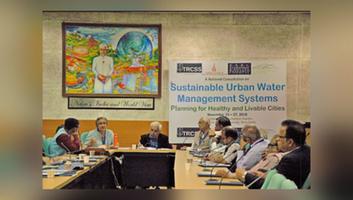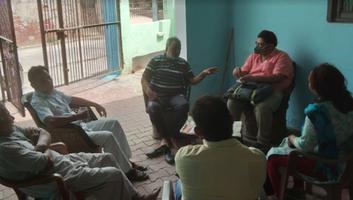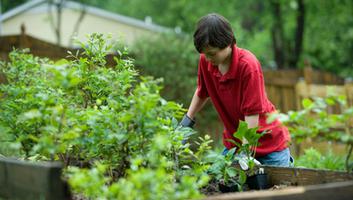T-Lab
As we all knows that big cities change rapidly, people moving into them can struggle for access to basic services like clean water and sanitation. One such city is Gurgaon, a secondary city that’s experienced rapid urban transition over the last two decades. To the southwest end of Delhi in the national capital region (NCR) of India, Gurgaon has seen a rapidly-growing influx of working-class and middle-class migrants.
Over the decades, the unsustainable growth and development have exacerbated Gurgaon’s water problems. The city’s urban and peri-urban areas rely on diminishing supplies of groundwater; access to sanitation is unequal, and water in poorer areas is polluted. Working-class migrants to Gurgaon have to struggle with the failures of the urban water system on an everyday basis.
To tackle these water related problems, Jawaharlal Nehru University's TRCSS (Trans disciplinary Research Cluster on Sustainability Studies) has set up India's first T-Lab (Transformation Lab) in Gurugram. T-Labs are a highly-facilitated process, involving research, workshops and other forms of engagement. They’re designed to unblock complex, intractable problems and find alternate ecologically sound and socially just solutions.
The Gurugram Water Forum (GWF) was also established through the research and discussions in the T-Lab. GWF is a multi-stakeholder knowledge sharing platform that brings together several linked initiatives. A vast majority of these initiatives are focused on generating and sharing knowledge. To do this, they have aimed to bring together trade unions, resident welfare associations, women groups, environmentalists, urban planners, architects, engineers and citizens on a common platform.
GWF which is currently led by TRCSS, JNU works toward various water related issues like prevention of urban flooding, water logging issues, rainwater harvesting, protection and regeneration of water bodies, sanitation and drainage, access and use and treatment and reuse.





